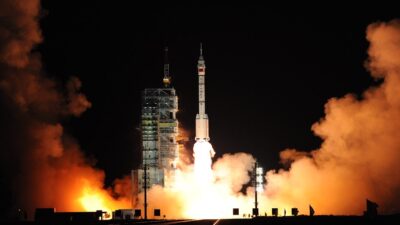In an era marked by rapid urbanization and environmental challenges, the concept of smart cities has emerged as a beacon of hope. These technologically advanced urban environments leverage data, connectivity, and innovative solutions to enhance the quality of life for their residents while promoting sustainability. As cities around the world grapple with pressing issues such as traffic congestion, pollution, and resource depletion, the integration of smart technologies offers a pathway to a more sustainable future.
The Foundation of Smart Cities
At the heart of smart cities lies the integration of Information and Communication Technology (ICT), the Internet of Things (IoT), and big data analytics. These tools provide city planners and administrators with real-time data about various aspects of urban life, from traffic patterns and energy consumption to waste management and public health. By synthesizing this data, cities can optimize operations and improve services, creating a more efficient urban ecosystem.
1. Improved Transportation
One of the most visible impacts of smart city technology is in the area of transportation. Features such as smart traffic lights, connected vehicles, and public transit tracking apps are designed to reduce congestion and improve flow. For instance, adaptive traffic signaling systems can adjust the timing of traffic lights based on real-time vehicular and pedestrian flow, significantly reducing wait times and emissions.
Moreover, many smart cities are investing in smart public transportation solutions, such as electric buses and real-time scheduling apps. This not only enhances the efficiency of public transport systems but also encourages more citizens to leave their cars at home, thus decreasing greenhouse gas emissions.
2. Sustainable Energy Management
Energy management is another critical component of smart cities. With a focus on sustainability, urban areas are investing in smart grids that enhance the efficiency of energy production and consumption. These grids enable two-way communication between utility providers and consumers, allowing for better demand response capabilities and the integration of renewable energy sources like solar and wind power.
Smart meters empower residents to monitor their own energy usage, encouraging conservation and reducing costs. Furthermore, advanced energy storage solutions, such as battery systems, allow cities to balance supply and demand, drawing on energy reserves when production fluctuates.
3. Water Conservation and Waste Management
Innovative technologies are also transforming water conservation and waste management practices in smart cities. IoT sensors in water distribution networks can detect leaks in real-time, significantly reducing water loss and ensuring that resources are used efficiently.
Similarly, smart waste management systems utilize sensors in dumpsters to monitor fill levels, optimizing collection routes and schedules. This not only saves operational costs but also minimizes the environmental impact associated with waste collection and disposal.
4. Enhancing Urban Spaces
The integration of technology extends beyond infrastructure; it also enhances the way public spaces are used. Smart parks equipped with Wi-Fi, charging stations, and digital information hubs encourage community engagement and recreation. Urban planners are increasingly using data analytics to design spaces that cater to the needs of diverse populations, fostering a sense of community and inclusivity.
Moreover, the use of green technologies in urban design, such as permeable pavements and vertical gardens, contributes to biodiversity and improves air quality, creating healthier living environments.
5. Promoting Citizen Engagement
A hallmark of smart cities is their focus on citizen engagement. Technology not only streamlines city services but also empowers residents to participate in decision-making processes. Mobile applications and online platforms enable individuals to report issues, provide feedback on services, and access city resources easily. This transparency fosters a sense of ownership among citizens and builds trust in local governments.
Challenges and Ethical Considerations
Despite the promising vision of smart cities, challenges remain. Privacy concerns and data security are paramount as cities collect vast amounts of sensitive information. Ensuring equitable access to technology is also crucial; if certain populations are left behind, the benefits of smart cities could exacerbate existing inequalities.
Furthermore, the successful implementation of smart city initiatives depends on collaboration among various stakeholders, including government entities, private companies, and the community. Finding common ground and aligning interests can be complex but is essential for sustainable development.
The Road Ahead
As urban areas continue to evolve, the integration of smart technologies presents an unprecedented opportunity to address pressing global challenges. By harnessing data and innovation, smart cities can create sustainable, efficient, and livable environments. The future of urban living may very well hinge on our commitment to building infrastructure that not only meets the needs of today’s residents but also preserves the planet for future generations.
Conclusion
Smart cities are not just a trend; they are a necessity for sustainable urban living in the 21st century. By embracing technology and fostering collaboration, municipalities can transform urban spaces into thriving ecosystems that prioritize both people and the planet. As we advance toward a more connected future, the lessons learned from today’s smart city initiatives will pave the way for sustainable urban development worldwide.



